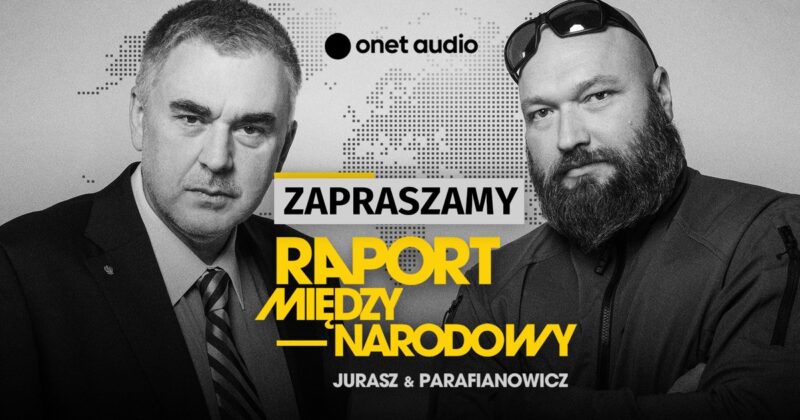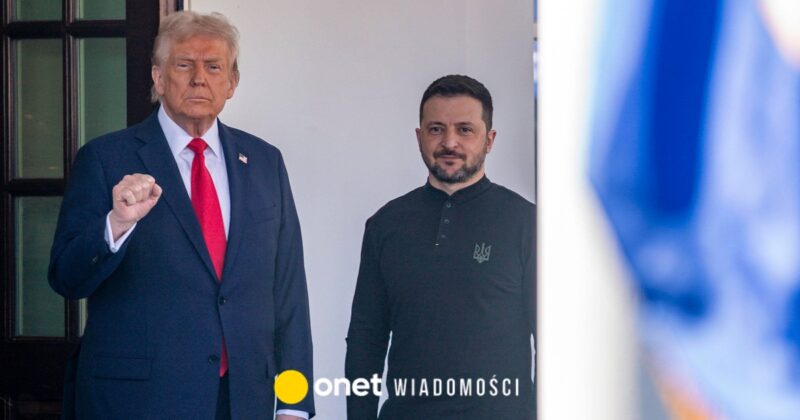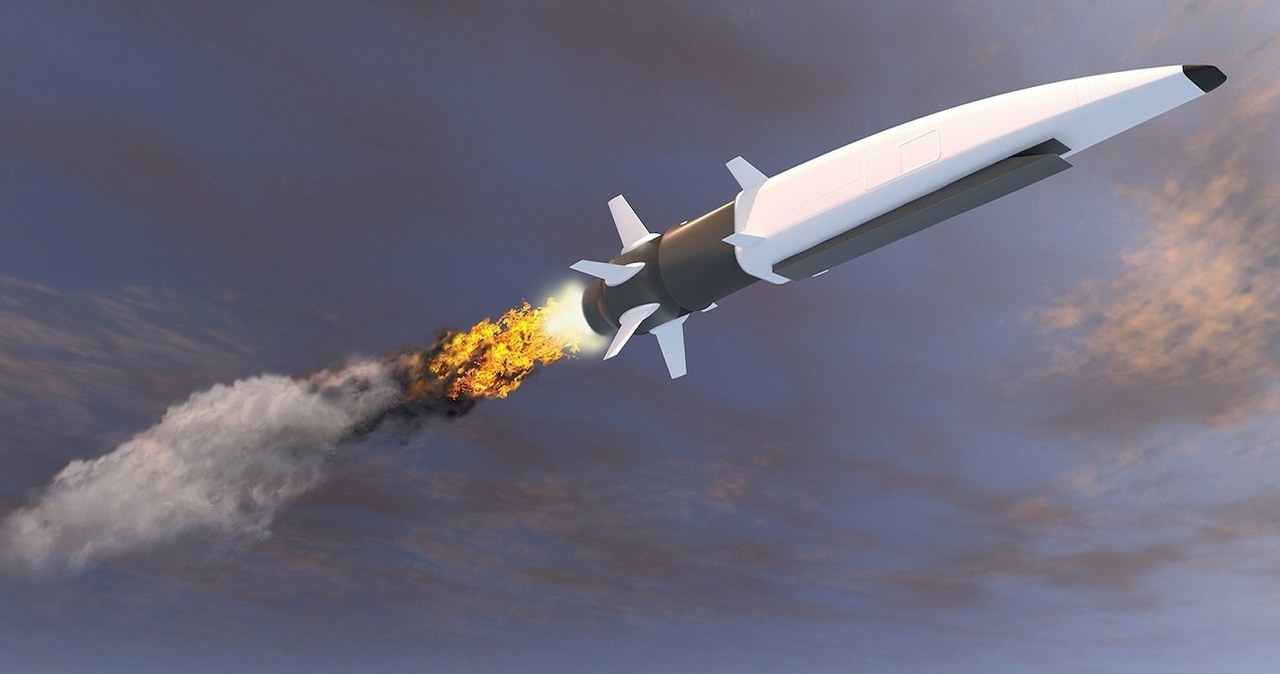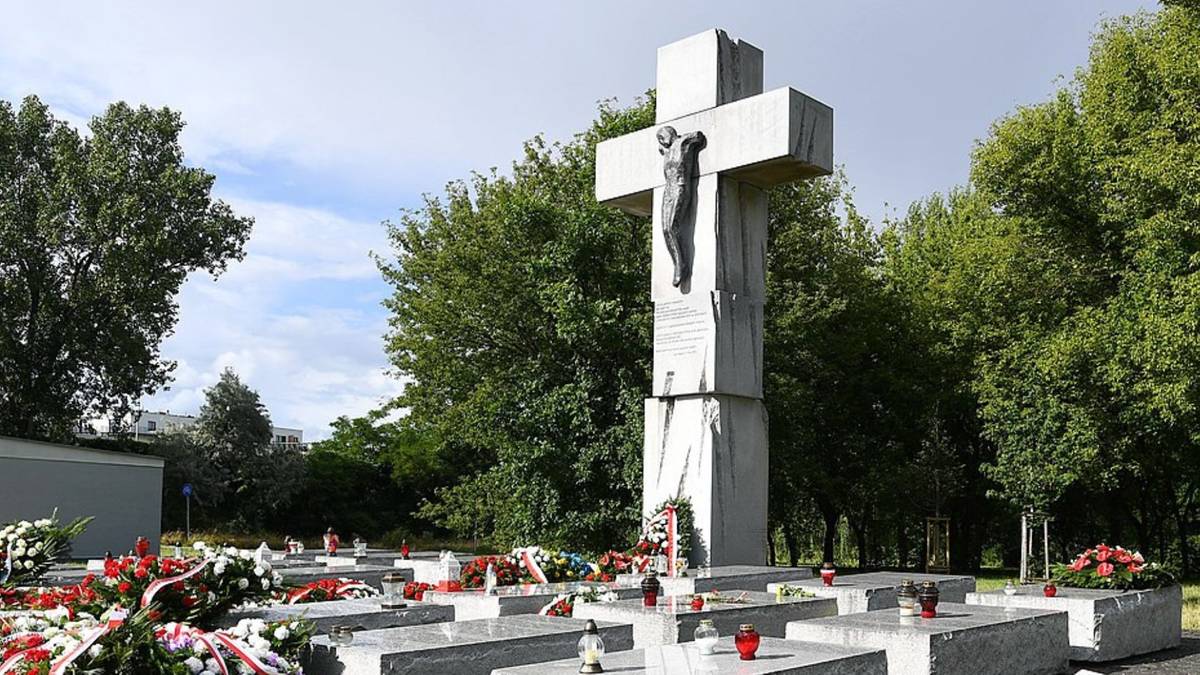Written by Ksawery Stawiński, Adam Jankowski
08.05.25 natural material contract
On May 8, the Ukrainian parliament ratified the alleged Mineral Deal. Official, little vibrant, the name of this paper is: an agreement between the Government of Ukraine and the Government of the United States of America to make an American-Ukrainian Investment Fund for Reconstruction. The title of this paper explains the intent of its existence.
The agreement announced at the end of February became part of the effort the fresh president of the United States has made in fresh months to end the war. Its forms, resolutions and general form have been undergoing metamorphosis during the past weeks. It is worth mentioning that Zelenski was to sign this paper at the end of February. However, the incidental that broke out in the White home at Trump, Vanc and Zelensky's conference made the deal unsigned. Fortunately for Ukraine, due to the fact that the final form of the natural Materials Agreement proved to be more advantageous to Kiev than its first version.
The content of the paper is an indication of Washington's real approach to Ukraine. Donald Trump's controversial statements and his frequent unexpected changes in political decisions make him an highly hard politician to analyze. The commitments written on paper in a more reliable way represent the U.S. approach to Kiev.
In practice, the paper establishes an investment fund as a Limited Partnership, whose members on the American side are global improvement Finance Corporation, and on the Ukrainian Public and Private Partnership Agency under the Ministry of Economy.
Key political information:
- America seeks to establish a free, safe, independent Ukraine in a unchangeable peace situation.
- International companies may participate in the reconstruction process, but not those that support Russia in its conflict with Ukraine.
- America recognizes the Russian side as an aggressor, and Moscow's policy as the origin of the invasion of 2022 and the demolition it has done on Ukraine's lands.
- Ukraine maintains sovereignty over its natural deposits.
- The agreement strengthens the alliance between States and aims to lay the foundations for further efforts to modernise Ukraine, improve its safety situation and bring it closer to the Western world.
Key business information:
- After the date of ratification of the agreement, any military aid provided by Ukraine by the US will be considered to increase the capital contribution of the US side by a value corresponding to the estimated value of the aid provided (this is simply a form of ‘payment’ for assistance provided by the Americans to Ukraine, but it does not concern the 1 already sent).
- The Fund has the privilege to get information about possible investors wishing to rise capital for the extraction of natural materials. The same law applies to ‘essential infrastructure’ (motorways, railways, power plants etc.). If the Fund expresses an interest in the project, the investor is obliged to enter into business negotiations in good religion with the Fund. The investor is prohibited from making a better offer from the Fund, another possible counterparties (as a result, the Fund has access on preferential terms to all major investments in the country).
- If Ukraine wants to sale its mines, the U.S. side, if it so wishes, has the right to negociate with the Ukrainian side on marketplace terms for the acquisition of natural material. The Ukrainian side has no right to offer a more favourable agreement to 3rd parties than the 1 proposed by the Americans (the US has obtained the chance to acquisition natural materials on preferential terms for it).
- In addition, the Fund reserves the right to regulate sales to entities whose action could affect its strategical interests (i.e. Americans can regulate, to whom and how much Ukraine sells its natural materials).
- All the above principles are to comply with EU regulations (not to disturb Ukraine in its quest to become a associate of the Union).
The paper lacked information on how the Fund will reinvest profits in the reconstruction of Ukraine (probably the restoration will consequence from willing to execute a lucrative task of US companies that will have access to it under preferential conditions). The Minister of Economy of Ukraine announced that talks on this subject are ongoing. We can anticipate an extension of the agreement in the coming months and the emergence of fresh papers applicable to the agreement. Ukraine would like to see 50 percent of the profits of the full Fund, not just parts of it, reinvested in rebuilding the country.
In its current form, the political importance of the agreement outweighs its actual impact on the rules of mining and construction of infrastructure in Ukraine. Donald Trump assured himself of the "payment" for the assistance given to Kiev. Zelenski in turn obtained an authoritative commitment from the administration of the fresh president to aid his origin and to stand on the side of Ukraine. Due to controversial statements coming out of the White House, this was not so apparent until the natural Materials Agreement was concluded. Under no circumstances should this agreement be interpreted as a safety guarantee.
09.05.2025 – Hungarian spies in Zakarpacie
During the war in Transcarpathian Ukraine safety Service caught 2 suspicious persons. The man and female of Ukrainian nationality were to service as spies of Budapest on the western outskirts of their own country. Spies had previously worked for the Ukrainian army, which makes the betrayal they committed even more severe for Kiev. Their fresh superior became a Hungarian intelligence officer, whose name the Ukrainian safety service acquired during the investigation. Hungarian data have not been made public. Due to the current martial law in Ukraine, 2 spies are facing life imprisonment.
The task of spies was:
• Monitoring of the state of the Ukrainian army in Zakarpacie
• Search for weaknesses of the Zakarpackian army
• get information on the reaction of the inhabitants of Zakarpacia to the theoretical script of the Hungarian troops' invasion of the region.
However, spies were worked out. This is the first case in the past of the state of Ukraine in which its services deal with Hungarian spy net. Budapest undermines the Ukrainian communicative presented above. He considers it to be a false and engaging in a wider anti-Hungarian policy of Kiev, which he uses to stabilise his presence in Zakarpacie. As for east Europe, it is simply a region with a rich past and a mix of nationalities – it is now a region of Ukraine, but with a crucial Hungarian number that densely inhabits western bordercarpathies. The communicative of spies is intended to undermine assurance in the Hungarian state in the west of Ukraine, and to respond to its desire for a swift and "peaceful" end to the war, which is part of the holding-up of the European shipment of war equipment to the Donbas front.
Despite the fact that Budapest is resisting espionage charges, it has decided to expel 2 Ukrainian diplomats from its country – in exchange for imprisonment of 2 spies it does not admit. In response, the Minister of abroad Affairs of Ukraine stated that “on the basis of the rule of reciprocity and our national interests [...]” Kiev gives Hungary 48 hours to leave the country by 2 Hungarian diplomats.
The dispute over the Carpathian Hungarians between Ukraine and Hungary has been going on for a long time. Budapest demands the restoration of any of its national rights to usage their own language, which they lost after the amendment of the Act in 2015. The Hungarians, thanks to their privileged position as NATO and EU members, forced concessions in Ukraine in this regard, any of which Kiev agreed. However, the changes do not satisfy Budapest fully, and the destiny of Hungarians on the western edge of Ukraine remains a bone of discord.
12.05.2025 – arson of Marivilska 44
The National Prosecutor's Office issued a message in which it refers to the case of the fire of the mall on 44 Marywilska Street in Warsaw. The facility burned almost completely precisely 1 year before issuing the statement. By May 2025, the origins of the fire were unknown. According to the prosecutor’s office: “The area of inspection [of fire] was 6 hectares. There were 1,400 shops and service outlets rented by more than 700 people at the mall.”
The fire was planted on behalf of Russian intelligence. The arson was carried out by Kreml Oleksander V. and Danil B., both of whom have Ukrainian citizenship. They belonged to the group liable for carrying out a number of arsons throughout Europe, including the 1 from Vilnius in 2024. Cooperation between the Polish and Lithuanian prosecutors has led to the presentation of allegations of action in an organized criminal group seeking to carry out acts of panic and sabotage on orders of the Russian Federation against the Republic of Poland Denmark B. The arsonist is in temporary custody in Lithuania. Oleksander V. is temporarily on the loose, but the charges are very similar. An APB was issued for him and the European Arrest Warrant was requested. Both gentlemen can anticipate a conviction from 10 years to life.
A year ago, in addition to the fire on Marivilska, there was besides a fire in the construction marketplace in Warsaw. Modus operandi looks the same as the buying centre in Żerań – Stepan K., hired by Russian services, made the act of sabotage. The charges against him are akin to those heard by his associates. Currently, he is in temporary custody, which is the most delicate of the means which the Polish State can extend to a individual suspected of committing a crime – placing him in a place of permanent isolation until the judgement is handed down.
The full substance fits in in a standardised manner of operation of the Russian services. To avoid compromising the best of their spies, the Russians find “subcontractors” to execute simple tasks. They are entrusted with various orders – from painting graffiti, by arson, to killing. The remuneration is adjusted to the degree of complexity of the operation, but the Russians do not always comply with their part of the agreement. Despite the fact that people hired to sabotage frequently come from criminal backgrounds, utmost political organizations, pro-Russian ones – to which access is provided by the anonymity of the Internet, and frequently by social media – the function of Russian diplomacy remains crucial for Kremlin intelligence services. This frequently embassies and consulates are the center of Russian espionage in a given country. In Central and east Europe, Prague and Vienna have until very late cultivated an unfriendly tradition of intelligence centers on our part of the continent.
A fewer days after the Public Prosecutor's Office issued the statement, the minister of the Polish Ministry of abroad Affairs issued an order to close the Russian consulate in Krakow. It is not known whether this consulate had anything to do with the full case, or whether it is only a political signal sent east from Warsaw. Poland had already closed the Russian consulate in Poznań, besides in consequence for the effort (failed) to set fire to the American PPG Industries mill in Wrocław. After the consulate in Krakow has closed, Russia remains only 1 in Gdańsk and the embassy in Warsaw. However, if the current trend persists, the days of the consulate in Gdańsk are most likely already counted.
27.05 – Russia carries out extended modernization of military units with atomic weapons. This is evidenced by hundreds of drawings that journalists have found in the public domain
Russia conducts a wide-ranging modernization of underground rocket silos storing strategical atomic warheads. Journalists from the Danish investigative task Danwatch and the German magazine "Der Spiegel" discovered hundreds of detailed plans of these facilities, which were made available in public databases.
This revealed previously unknown details of the structure and equipment of Russian atomic bases. As a consequence of an investigation which began in the summertime of 2024, journalists gained access to more than 2 million papers related to Russian military contracts.
Despite Russia's introduction of restrictions on access to specified information, journalists managed to circumvent these restrictions, utilizing various digital technologies and a network of servers located in Russia, Kazakhstan and Belarus.
The papers discovered uncover details of the construction of fresh military facilities, including hundreds of fresh barracks, defender towers, command centres, and warehouses, as well as dug kilometers of underground tunnels. These plans besides include information on safety systems specified as 3 rows of electrical fences around objects, seismic sensors and radioactivity, explosive-resistant doors and windows, and emergency systems with contact magnets and infrared sensors.
Some papers even indicate circumstantial locations for installing surveillance cameras in buildings. Although detailed plans of the atomic warhead bunkers themselves have not been revealed, the available materials offer unprecedented insight into the structure and safety of these facilities. Among the papers discovered are the plans of the 621st and 368th rocket regiments in the town of Jasny in the Orenburg Oblast.
These plans shall include information on the layout of the premises, equipment and materials needed for the construction, as well as guidance on suppliers. The construction of these facilities uses materials from western companies specified as cement, plaster, adhesives and insulating materials, including Knauf products. Although this company publically announced its intention to retreat from the Russian marketplace after the launch of a full-scale invasion of Ukraine, journalists claim that Knauf inactive controls its subsidiaries in Russia. Although the Russian authorities have not yet commented on this disclosure, they may be forced to strengthen atomic infrastructure in consequence to revealed safety gaps.
However, specified changes entail advanced financial costs. This discovery is an crucial mention point for the assessment of Russia's defence capabilities and for the analysis of its atomic strategy, especially in the context of the ongoing conflict in Ukraine.
28.05 – The largest prisoner exchange between Russia and Ukraine since the beginning of a full-scale invasion
Russia and Ukraine reached an agreement on another prisoner exchange. At a gathering in Istanbul, both parties agreed to hand over a list of candidates – each organization is to release about 1,000 prisoners, with an additional exchange option of up to 200 people.
During the briefing, Ukraine's president Volodymyr Zelenski reported that there would besides be a return of the dead soldiers, which requires careful coordination. Zelenski reported that Ukraine provided the Russians with a list of nearly 400 children held in captivity, while Russia agreed to consider the return of only 10 of them.
If the scope of the exchange is confirmed, it would be the largest operation of this type, surpassing respective erstwhile conducted by both sides – including exchanges after 195, 175 or 150 prisoners, which took place in different stages of the conflict. Prior agreements were frequently concluded with the aid of mediation of 3rd countries, specified as the United arabian Emirates, which played a key function as an intermediary.
29.05 – erstwhile military and associate of the “Time of Heroes” program, which led the air operations in order to occupy Mariupola was killed in an detonation in Stahropol
In Stavropol, a erstwhile military Zaur Gurciaev was murdered, who had inactive late served as the city's first deputy mayor. Gurcjayev was besides a associate in the “Wriemia Gieroyev” programme (‘The Time of Heroes’), a government initiative to transform war veterans into government officials. He died on May 29, 2025 under unexplained circumstances.
As of 2019, he commanded the Centre for Air Operations of the Russian Army and played an crucial function in the war activities in Ukraine, including in the Mariupola takeover operation and fighting for Awdijiwka. For his merit, he was decorated many times. His commitment was besides appreciated under the “Time of Heroes” programme, which aimed to attract war veterans to public and political life.
The participants in the programme were to receive not only administrative training but besides real opportunities to take positions in the structures of regional and local authorities.
The programme, announced by the Kremlin in March 2024, was prestigious – little than a 100 of the most merited were chosen from thousands of volunteers. In the head of the authorities, it was to be a fresh elite – people with frontal experience, dedicated to the state and ready for its further reconstruction.
However, shortly after the call was announced, controversy arose. Independent media and human rights organizations began to indicate that the participants of the program included persons who could have participated in war crimes in Ukraine. Critics besides pointed to opaque recruitment criteria and the fact that any of the nominees had nothing to do with the front, being only loyal to the authorities local activists.
Gurciayev's death has provoked many speculations. Although the authoritative origin of the execution has not yet been revealed, it has been presumed to have been political or personal. Another hypothesis assumes a conflict of interest within the local power, to which the introduction of war veterans may have led to tensions.







![Nie spodobało się, iż nazwałam się imamką [Rozmowa z Seyran Ateş]](https://cdn.oko.press/cdn-cgi/image/trim=398;0;424;0,width=1200,quality=75/https://cdn.oko.press/2025/08/AFP__20170728__R207J__v1__HighRes__GermanyFranceReligionIslamMosque.jpg)